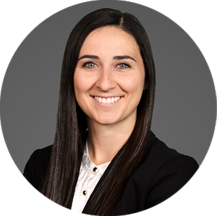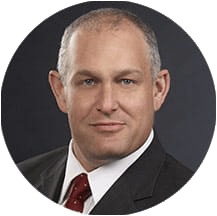On January 17, 2017, the Department of Homeland Security (“DHS”) published its final adaptation of the International Entrepreneur (IE) Rule (“Rule”). The Rule authorizes DHS to exercise its discretion to grant parole to foreign entrepreneurs who would provide a significant public benefit to the United States. Significant public benefit includes enhancing innovation, generating capital investments, and creating jobs. The IE parole program will continue to offer foreign entrepreneurs the opportunity to create and develop start-up entities with high growth potential in the United States.
The parole period is valid for up to 30 months and may be extended for an additional 30 months.
This regulation is great news for foreign entrepreneurs who seek to build, oversee and grow their start-up companies in the United States, especially for those that do not come from countries that enable them to pursue E1 or E2 visas/changes of status. The Rule is now in effect and available for applicants.
Initial Parole
To qualify for initial parole, a foreign entrepreneur (“applicant”) must meet the following criteria at the time of adjudication:
1. New Start-Up Entity: The applicant has created a new entity within the 5 years immediately preceding the filing date;
2. Substantial Ownership Interest: The applicant possesses at least 10% ownership interest in the start-up entity;
3. Central & Active Role: The applicant plays an active and central role in the start-up entity. Stated differently, the applicant cannot be a “passive” investor and must be well-positioned to assist the entity in growing its business in the United States; and
4. Potential for Rapid Growth and Job Creation: The applicant must demonstrate that the start-up entity shows potential for rapid growth and job creation in one of the following ways:
a. Receipt of at least $250,000 from “qualified U.S. investors” with successful track records (funds must be received 18 months before filing);
b. Receipt of at least $100,000 in grants or awards from government entities with expertise in economic development, research, and development, or job creation (funds must be received 18 months before filing); OR
c. Alternatively, the applicant may provide additional reliable and compelling evidence to satisfy this requirement.
Re-Parole
To qualify for re-parole, the applicant must meet the following criteria at the time of adjudication:
1. Significant Ownership Interest: The applicant possesses at least 5% ownership interest in the entity;
2. Active & Central Role: The applicant continues to play an active and central role in growing the entity; and
3. Continuation of Start-Up Entity: The applicant must demonstrate that the entity has been lawfully operating in the United States, and continues to show potential for rapid growth and job creation during the initial parole period. The latter may be established in one of the following ways:
a. Receipt of at least $500,000 in additional funding from qualified U.S. investors and/or government entities;
b. Receipt of at least $500,000 in annual U.S. revenue (with 20% average annualized revenue growth);
c. Creation of at least 5 full-time U.S. jobs; OR
d. Alternatively, the applicant may provide additional reliable and compelling evidence to satisfy this requirement.
Work Authorization
Upon grant of parole, the entrepreneurs may work in the United States, but only for the qualified start-up entities. Their spouses may apply for a work permit, but children of the entrepreneurs cannot apply for
Parole Activation
For entrepreneurs abroad, they must enter the United States to activate parole. For those in the United States (in another status), they must first depart the United States and then appear at a U.S. port of entry to be paroled in.
Nonimmigrant/Immigrant Classifications
DHS made clear that “parole” in this case is not considered an “admission” or a “visa.” Thus, qualified entrepreneurs may not adjust or change status in the United States (unless otherwise eligible). However, prior to reaching the 5-year parole period, entrepreneurs may apply for any nonimmigrant or immigrant classification in which they are qualified for. Upon approval of the relevant visa petitions, the entrepreneurs would generally be required to depart the United States to apply for the visas at a U.S. consulate.
Other Considerations
Although the Rule is quite comprehensive, the application process is in development. Consequently, entrepreneurs who have questions about their eligibility should contact an experienced immigration attorney, who has the ability to accurately interpret and understand the new regulation. It is crucial to be well-informed and well-prepared before applying for this program.
Wilner & O’Reilly is a multi-state law firm exclusively dedicated to the practice of immigration law. During these uncertain times, we at Wilner & O’Reilly are closely monitoring all immigration changes so that we can provide individuals with the up-to-date information they need. For individualized advice on your immigration situation, please contact us to schedule a first time free consultations at our offices in Orange, Riverside, Fresno, Sacramento, and San Francisco, California; Salt Lake City and Orem, Utah; and Boise, Idaho.
ABOUT THE AUTHOR(S)
THAMYS C.P. GAERTNER – ASSOCIATE ATTORNEY – SALT LAKE CITY

Thamys C.P. Gaertner is an Associate Attorney in the employment-based department of Wilner & O’Reilly, APLC’s Salt Lake City office. Ms. Gaertner earned her bachelor’s degree in political science from the University of Utah and her Juris Doctor from the Sturm College of Law at the University of Denver. During her time in law school, Mrs. Gaertner worked as a student volunteer with the United States Citizenship and Immigration Services (USCIS), Rocky Mountain Immigrant Advocacy Network (RMIAN) and the Denver immigration court. She also worked as a research assistant and authored multiple articles on various “crimmigration” topics, served as a staff editor on the Criminal Law Review and was awarded the “Academic Scholastic Excellence Award for Oral Advocacy.” Languages: English, Portuguese, Spanish.
RICHARD WILNER – FOUNDING PARTNER

Richard M. Wilner is a founding member of Wilner & O’Reilly, APLC and is Board Certified by the State Bar of California as a Specialist in Immigration and Nationality Law. He is admitted to practice law in the State of California and before the U.S. District Courts for the Central, Northern and Southern Districts of California, the Northern District of Texas, the U.S. Court of Appeals for the Ninth Circuit and the U.S. Supreme Court.Mr. Wilner has received the coveted Martindale-Hubbell AV Rating, the highest legal and ethical rating that one can receive from one’s peers in the legal community. Similarly, he has been awarded the title of Super Lawyer from 2007 to the present. He is best known for his work in advising Fortune 500 companies, middle and small market businesses, entrepreneurs and foreign nationals of extraordinary ability in athletics, arts, and sciences in the complex area of U.S. Immigration and Nationality Law.


Comments are closed.